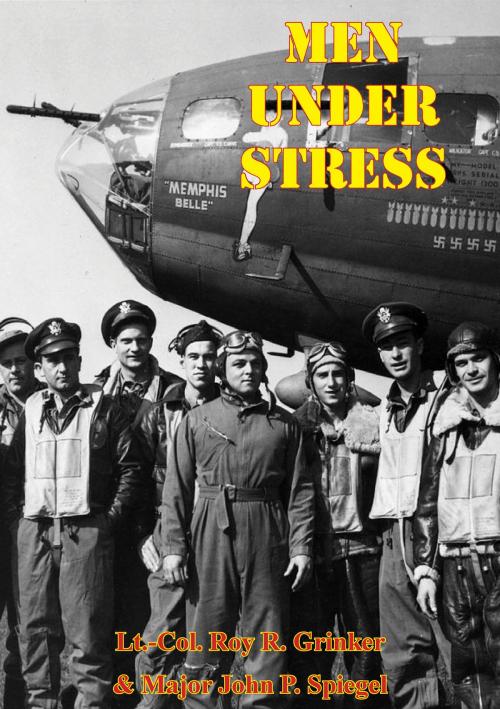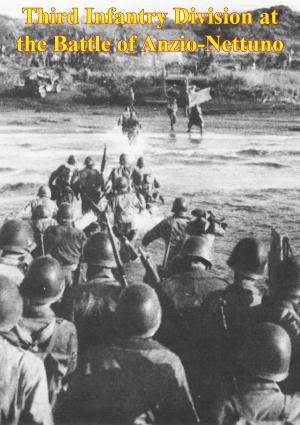| Author: | Lt.-Col. Roy R. Grinker, Major John P. Spiegel | ISBN: | 9781786256942 |
| Publisher: | Lucknow Books | Publication: | November 6, 2015 |
| Imprint: | Lucknow Books | Language: | English |
| Author: | Lt.-Col. Roy R. Grinker, Major John P. Spiegel |
| ISBN: | 9781786256942 |
| Publisher: | Lucknow Books |
| Publication: | November 6, 2015 |
| Imprint: | Lucknow Books |
| Language: | English |
The stress of war tries men as no other test that they have encountered in civilized life. Like a crucial experiment it exposes the underlying physiological and psychological mechanisms of the human being. Exceedingly valuable lessons can be learned from it regarding the methods by which men adapt themselves to all forms of stress, either in war or in peace. Under sufficient stress any individual may show failure of adaptation, evidenced by neurotic symptoms. Such symptoms then are pathological only in a comparative sense, when contrasted with the symptoms of those still making successful adaptations.
While the material in this book concerns flying personnel almost exclusively, the psychological mechanisms under discussion in this book are those that apply to Everyman in his struggle to master his own environment. In this realm, a hair divides the normal from the neurotic, the adaptive from the non-adaptive. The failures of adaptation of the soldier described herein mirror Everyman’s everyday failures or neurotic compromises with reality.
The book’s material is roughly divided into a discussion of war neuroses appearing overseas and those in combat veterans returned home for relief from flying or for rehabilitation. “Men under Stress” covers a vast array of topics, beginning with the background and selection of flight personnel, followed by seventeen chapters on the combat environment and reactions to it—which include the subjects of morale, combat stress, psychodynamics, emotional disorders and neurotic reactions, guilt and depression, aggression and hostility, psychosomatic states; psychotic-like states, and the treatment modalities of psychotherapy, narcosynthesis, and adjunctive treatment. The book closes with two chapters on civilian applications, including civilian psychiatry and general social implications.
The stress of war tries men as no other test that they have encountered in civilized life. Like a crucial experiment it exposes the underlying physiological and psychological mechanisms of the human being. Exceedingly valuable lessons can be learned from it regarding the methods by which men adapt themselves to all forms of stress, either in war or in peace. Under sufficient stress any individual may show failure of adaptation, evidenced by neurotic symptoms. Such symptoms then are pathological only in a comparative sense, when contrasted with the symptoms of those still making successful adaptations.
While the material in this book concerns flying personnel almost exclusively, the psychological mechanisms under discussion in this book are those that apply to Everyman in his struggle to master his own environment. In this realm, a hair divides the normal from the neurotic, the adaptive from the non-adaptive. The failures of adaptation of the soldier described herein mirror Everyman’s everyday failures or neurotic compromises with reality.
The book’s material is roughly divided into a discussion of war neuroses appearing overseas and those in combat veterans returned home for relief from flying or for rehabilitation. “Men under Stress” covers a vast array of topics, beginning with the background and selection of flight personnel, followed by seventeen chapters on the combat environment and reactions to it—which include the subjects of morale, combat stress, psychodynamics, emotional disorders and neurotic reactions, guilt and depression, aggression and hostility, psychosomatic states; psychotic-like states, and the treatment modalities of psychotherapy, narcosynthesis, and adjunctive treatment. The book closes with two chapters on civilian applications, including civilian psychiatry and general social implications.













![Cover of the book The Battle Of The Somme - The First Phase. [Illustrated Edition] by Lt.-Col. Roy R. Grinker, Major John P. Spiegel](https://www.kuoky.com/images/2012/april/300x300/9781782890676-yd5P_300x.jpg)

